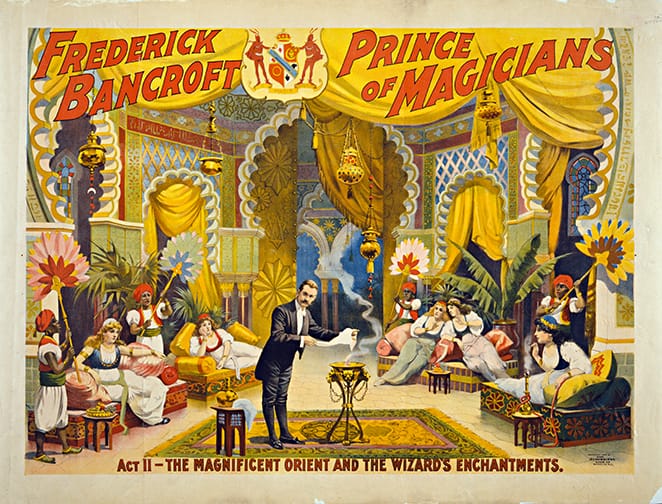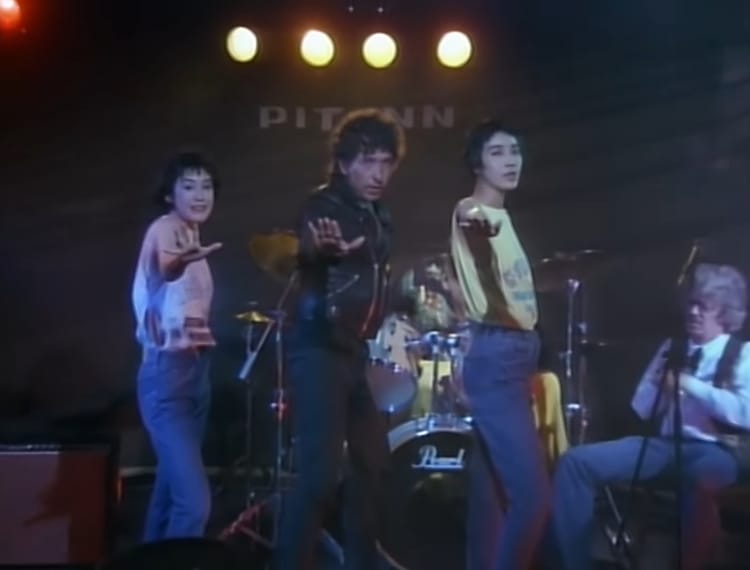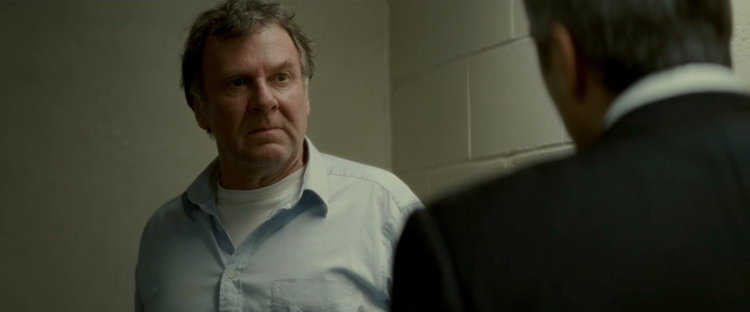It's Todd Haynes's Turn to Do "Persona"

Early in May December, Gracie (Julianne Moore) glances into the fridge and comments that her family may not have enough hot dogs for their cookout. It’s a throwaway line that puts a button on a scene, but director Todd Haynes subverts and inverts the meaning of the moment through one creative choice: the line is preceded by an incongruous sting of melodramatic music, as though a character were on the verge of confessing some hidden crime. The effect isn’t dramatic, but rather intensely comic–on some level, May December functions like a shaggy dog joke, with Haynes pleasurably ratcheting the tension towards a histrionic punchline that’s not destined to come.
Of course, Gracie is guilty of a crime, and a pretty significant one: back in the ‘90s, she had an affair with a seventh grader, abandoning her family to carry the child’s baby even after her actions landed her in prison. Upon her release, however, the story took an even more transgressive turn: Gracie and her underage lover maintained a relationship that burgeoned into a marriage and a family of their own. Now, Joe (a revelatory Charles Melton) is in his mid-30s with a kid in college and two more heading there in the fall, a prospective empty nester who’s younger than I am now. Gracie, meanwhile, keeps her tumultuous inner life at bay through hobbies, and a baking business that may not be as genuinely popular as it seems. In any case, Joe and Gracie have built a stable life together. And then, in the opening moments of Haynes’s film, the destabilizing force enters the picture.
“Mom said it’s my turn to do Persona,” the great Cassidy Olsen tweeted after the logline of May December was announced. That logline did evoke both Ingmar Bergman’s classic, and the tradition of “persona swap” movies (a tradition I once discussed deep in this essay on Altman’s 3 Women) that it’s spawned over the years: Elizabeth (Natalie Portman), an actress preparing for a juicy role, must travel to an insular community to study the subject of her performance, immersing herself in the life of the real person with every intention of blurring the boundary between them. The premise is so overtly persona-swap it would stand to reason that screenwriter Samy Burch (who conceived the story with Alex Mechanik) was aware of the tropes she was playing with. The transferences that happen in May December seem intentionally knotty and subtle, as though Burch challenged herself to unsettle the audience as profoundly as any persona swap movie that’s come before.
From his earliest work, Haynes has been interested in what I think of as aberrance–people whose behaviors, essential qualities, or both, somehow fall outside of mainstream acceptance, leading to a pressure to conceal the truth. You can trace it from his earliest work (in Superstar, Karen Carpenter’s struggle with bulimia must be kept from view so as not to tarnish her celebrity) to his most recent feature screenplay, I’m Not There (in which Bob Dylan’s otherness is emphasized and heightened by bending his gender). The work Haynes has done with other screenwriters since 2007 is perhaps less overtly focused on aberrance (the stigmatized gay love of Carol being an arguable exception), but its roots in his writer/director work run deep–his short Dottie Gets Spanked is focused on the shameful erotic awakening a young boy experiences through watching a woman suffering the titular abuse; Safe concerns itself with the ostracizing impact of chronic illness; in Velvet Goldmine, rock idols become purveyors of high-profile transgression. Haynes is interested in situations where all is not right psychologically and publicly, and it’s nowhere more evident than in his debut feature, Poison, a trifurcated story of gay love (told in a style of baroque melodrama), infectious disease (told in a style of pulp horror), and familial abuse (told in a style of TV documentary).
With Poison, Haynes debuted the technique that would carry over into I’m Not There: the shifting film formats that function to prismatize one concept. Each of the characters in I’m Not There represents some shard of one consciousness that, if united, would come into focus as Bob Dylan, and Haynes emphasizes their unbridgeable distance from one another by changing the very nature of the palette they live within. If Poison is not quite so directly readable as a story of a single split consciousness, it nevertheless takes one theme–otherness–and sends it through the same centrifuge that he put Bob Dylan through, emerging with component parts that leave each one linked symbiotically to the others. (He played with format again in Wonderstruck, but, like every element of that movie, it’s not all that interesting).
I linger on this stylistic urge because it came to mind by the end of May December. Gracie lost control of her own public identity years ago, around the time she became a fixation of tabloid culture. Now, we see her story being rendered as fiction–Elizabeth will be starring in an indie version of the story one could imagine being put out by A24 or Neon–but it’s not the first time. We catch glimpses of the low-budget TV movie apparently made of this story in the VHS era, a version that’s salacious to the point of softcore-adjacency. You can see these three points on the film’s story map (the real Gracie’s internal continuity, and the two fictionalized depictions that serve to steal away some essential part of her own reflection) as psychological fault lines that begin to rumble as soon as Elizabeth enters the picture. All Gracie wants to do is maintain a tenuous grasp over something she can call normalcy. Elizabeth is a direct threat to that stability, and if the worst outcomes imagined by Gracie and the audience may not come to pass, the impact these three characters have on one another is profound.
Melton, in particular, vaults into the realm of our most interesting young performers, at least in the hands of a great director (no shade to those behind Riverdale). The moment on which we leave him is fraught with an entire film’s worth–an entire lifetime’s worth–of psychological weight, and Haynes asks him to do something difficult on multiple levels. He hits it out of the park, while the camera regards him with a sort of voyeuristic detachment–the entire film seems to be filmed through a paparazzo's zoom lens, the observing eye hiding at a discrete distance while peering unnaturally closely at this rocky domestic arrangement that only grows rockier before our eyes.
As I alluded to earlier, Haynes hasn’t written a screenplay in about fifteen years now, since his HBO adaptation of Mildred Pierce. His work with other screenwriters is mostly good to great (Wonderstruck is a stinker, but Dark Waters is a solid example of the one-good-man-against-the-system drama). I do feel like some kind of luster went out of his features after I’m Not There, though. Even when he writes something as theoretically straightforward as the melodrama pastiche Far from Heaven, the result bears clear traces of Haynes’s college background in semiotics, while his recent run of films have been…well, just some mostly good films.
All of which is to say: May December feels like a return to form for Haynes, the first film he’s made since I’m Not There that feels like he could have written it. The movie is dense with the kind of complexity of character and theme that I expect in his best work. It’s a complicated movie I can’t wait to watch for a second and third time, which I haven’t been able to say of a Haynes movie in a decade and a half. If something feel precarious about the new Todd Haynes movie living on one of those easily-wiped streaming services, well, at least that means that for now, it’s at my fingertips.




